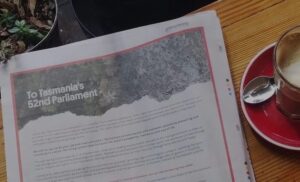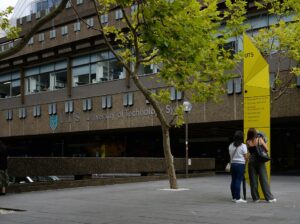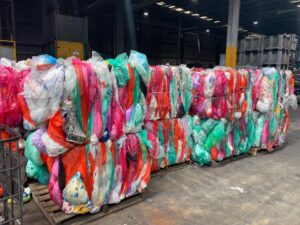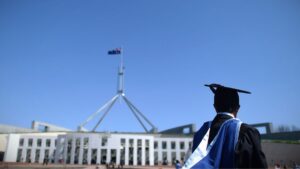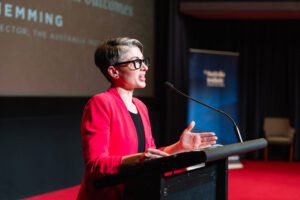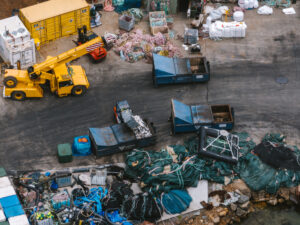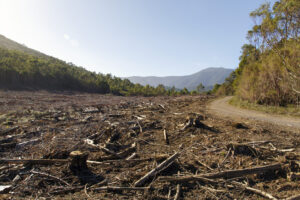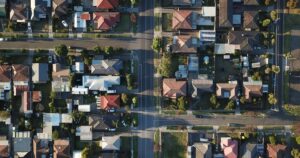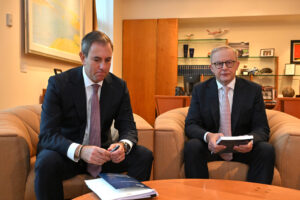July 2025
Open Letter to the Tasmanian Government
The Australia Institute and 30 other organisations from around Tasmania have published an open letter with 10 asks for the environment from whomever forms Tasmania’s next government. When cross-benchers and major parties have struck successful power-sharing agreements elsewhere, they covered policy as well as procedure, making now the ideal time for progress.
While university leaders zip around the world, consultants are creating twin crises on Australian campuses
University leaders are keeping their institutions in the news for all the wrong reasons. Yesterday, it was University of Technology Sydney’s (UTS) turn for a round of bad press.
10 reasons why Australia does not need company tax cuts
1/ Giving business billions of dollars in tax cuts means starving schools, hospitals and other services. Giving business billions of dollars in tax cuts means billions of dollars less for services like schools and hospitals. If Australia cut company tax from 30% to 25% this would give business about $20 billion in its first year,
June 2025
Polling – Superannuation
YouGov conducted a national survey of 1,535 voters on behalf of The Australia Institute between 6 and 11 June 2025, using an online survey polling methodology. Full details are provided in the methodology statement. The poll is compliant with the Australian Polling Council’s requirements. The margin of error on the effective sample size is 3.2%.
May 2025
Soft plastic recycling is back in supermarkets!
For many of us, the end of June will mark the return of soft plastic recycling run by the Soft Plastics Taskforce (SPT), which is made up of the three major supermarkets: Woolworths Group, Coles Group and ALDI. But this may be premature since the joint recycling strategy from the Ministry of the Environment and
University is expensive, especially so for humanities students
The PM and the education minister have made big noises about easing cost of living pressures for Australians with large HECS/HELP debts. But they’ve been very slow to do anything about the high cost of getting a degree in the first place.
Nearly 40 years of efficiency dividends, and what have we got to show for it?
The size of the public service has been one of the sharper issues in this election campaign. But so far, the debate has been about “cuts” or “no cuts”, “working from home” or “back to the office you go”.
5 ideas for a better Australia (missing from the election campaign)
We’re in the final days before the 2025 Federal Election. Sifting through slogans and dodging dreary debates, the team at the Australia Institute has put together a list of practical ideas that have been missing from the mainstream.
Five reasons why young Australians should be pissed off
1. Uni graduates pay more in HECS than the gas industry pays in PPRT University used to be free but is now more expensive than ever. After graduating with an arts degree a young Australian will now repay the government around $50,000. Meanwhile, Australia is one of the world’s largest gas exporters, but multinational gas
April 2025
Letter to the UN to assess Tasmanian salmon farm environmental damage
On Sunday in Hobart over 6,000 people protested against the harmful practices of foreign owned salmon industry in Tasmania. The Australia Institute’s Tasmanian director, Eloise Carr, spoke to rally participants about recent changes to national nature laws and how the Institute has raised this issue with the UN. Seventeen civil society organisations have written to
Five priorities for the next parliament if we want a liveable Australia
Climate and nature crises won’t pause while politics plays out.
The four things (mostly) missing from the major parties housing platforms
The housing crisis continues to grip Australia and it’s a central part of this election campaign. Unfortunately, while both major parties have made housing policies key parts of their election platforms their policies mostly tinker around the edges and fail in four key ways. They do not address Australia’s distortionary, expensive, and regressive tax concessions
March 2025
Commonwealth Budget 2025-2026: Our analysis
The Centre for Future Work’s research team has analysed the Commonwealth Government’s budget, focusing on key areas for workers, working lives, and labour markets. As expected with a Federal election looming, the budget is not a horror one of austerity. However, the 2025-2026 budget is characterised by the absence of any significant initiatives. There is
Budget 2025 Winners and Losers – The Australia Institute
Some quickfire analysis from Greg Jericho, Chief Economist
February 2025
Creating jobs and building a good society while meeting the global warming challenge – Doug Cameron | Climate Integrity Summit 2025
Far from costing Australians, decisive climate action will, in fact, strengthen Australia’s economy, security, community wellbeing and international influence.
December 2024
Mapping how extreme heat exacerbates inequality
Extreme heat is the number one cause of weather-related illness and death in all parts of Australia, except Tasmania. Older, poorer, and sicker people are more vulnerable to the effects of extreme heat. Our new report identifies the locations around Australia in which the greatest number of vulnerable people will be affected by extreme heat. Targeting these areas for support will ensure the greatest number of vulnerable people are helped during periods of extreme heat.
In worrying about productivity growth, the RBA has strayed beyond its remit
It’s official: the Reserve Bank of Australia will have its board split in two, and two new appointees will join the reconfigured monetary policy board, whose job it is to make decisions on interest rates. The move was recommended by an independent review panel in 2023. The new members of the monetary policy board, one
Coal royalties are a tiny part of the NSW Budget
The people of Australia collectively own all the resources under the ground. This means that the coal in NSW is the property of the Australian people too. Because of this, mining companies have to pay the NSW Government a “royalty” if they want to dig up and sell coal. Royalties are not taxes. They are
Gardening for a healthier life and a healthier planet
Australians are hungry to grow their own food and the reasons are simple: growing your own food is healthier and better for the planet. Whether it’s herb pots on a windowsill or a rambling backyard veggie patch, Australians say that growing some of their own food makes them feel better, eat better and tread lighter on the planet.
Australia’s traffic fine system is unfair – is it time to implement proportional fines?
How is Australia’s system unfair? If you get caught speeding in Australia, you will be fined with a flat-rate traffic fine. Exceeding the speed limit by 12km/h in New South Wales earns you a $361 fine, whether you are on government benefits or a billionaire. This is not a fair system. What about the principle:
November 2024
Pacific Labourers overtaxed and exploited in Australia
The Pacific-Australia Labour Mobility (PALM) scheme is often presented as being beneficial to all parties—Australia, Pacific workers, and those workers’ home countries. In reality, the benefits are weighted in favour of Australia.
Corporate profits increase inflation | Fact Sheet
The prices of many goods and services have increased dramatically across Australia since 2021. This has resulted in hardship for many households—along with $100 billion in increased profits for major companies. These corporate profits have been a key factor driving inflation.
October 2024
Super-powered nukes: Is your superannuation funding weapons of mass destruction?
When you choose your superannuation fund, you’re probably not thinking about weapons of mass destruction. But it might surprise you to learn that if you’re with one of Australia’s largest funds, your money is going into the production of nuclear weapons. Research published last month by Quit Nukes and The Australia Institute found that 13
Australian super funds investing in nuclear weapons companies
How would you feel if your super was invested in nuclear weapons companies? Well, in Australia, there’s a high chance it is.
Inaction “not an option” after damning report into the state of Tasmania’s environment
On Saturday 19 October, 20 organisations, including the Australia Institute, published an open letter calling on the Rockcliff Government to acknowledge the damning findings from Tasmania’s 2024 State of the Environment Report and commit to reversing the state’s environmental declines.
September 2024
Australia is a low-tax country | Fact sheet
Australia is one of the lowest-taxing countries in the developed world. While it is sometimes suggested that Australian governments spend too much, the reality is that Australia raises very little tax revenue compared to similar countries. Insofar as Australian governments have a problem balancing revenue and spending, that problem lies in the level of revenue
August 2024
Taxes on tampons, tax breaks for luxury utes: gender in the budget
Last week, the federal government announced plans to define menstrual products as “lifestyle-related” and exclude them from NDIS funding.
Greedflation: what’s really causing inflation | Joseph Stiglitz on Q+A
Is government spending inflationary?
July 2024
Over 30 organisations urge the Rockliff government to release Tasmania’s decade-overdue State of the Environment Report
Tasmania’s Government has failed to publish a State of the Environment Report since 2009,
despite having a legal obligation to do so every five years.
June 2024
Webinar: Stop passing the buck -Workers’ compensation and ‘gig’ workers
Workers’ compensation and rehabilitation are amongst the most important legal issues facing the ‘gig’ economy. This reflects the potential vulnerability of these workers and their families, co-workers, and community to harsh and long term consequences from injuries. For a while, it looked like federal industrial policy might ‘solve’ the workers compensation problem by redefining ‘gig’/platform
General Enquiries
Emily Bird Office Manager
mail@australiainstitute.org.au
Media Enquiries
Glenn Connley Senior Media Advisor
glenn.connley@australiainstitute.org.au
